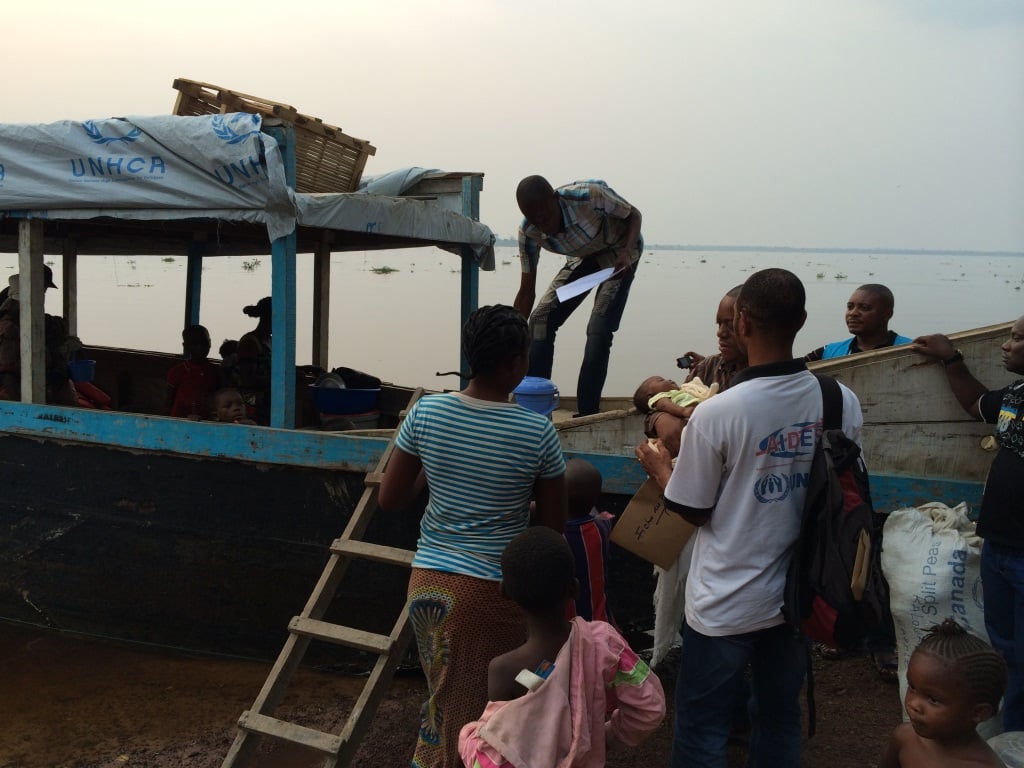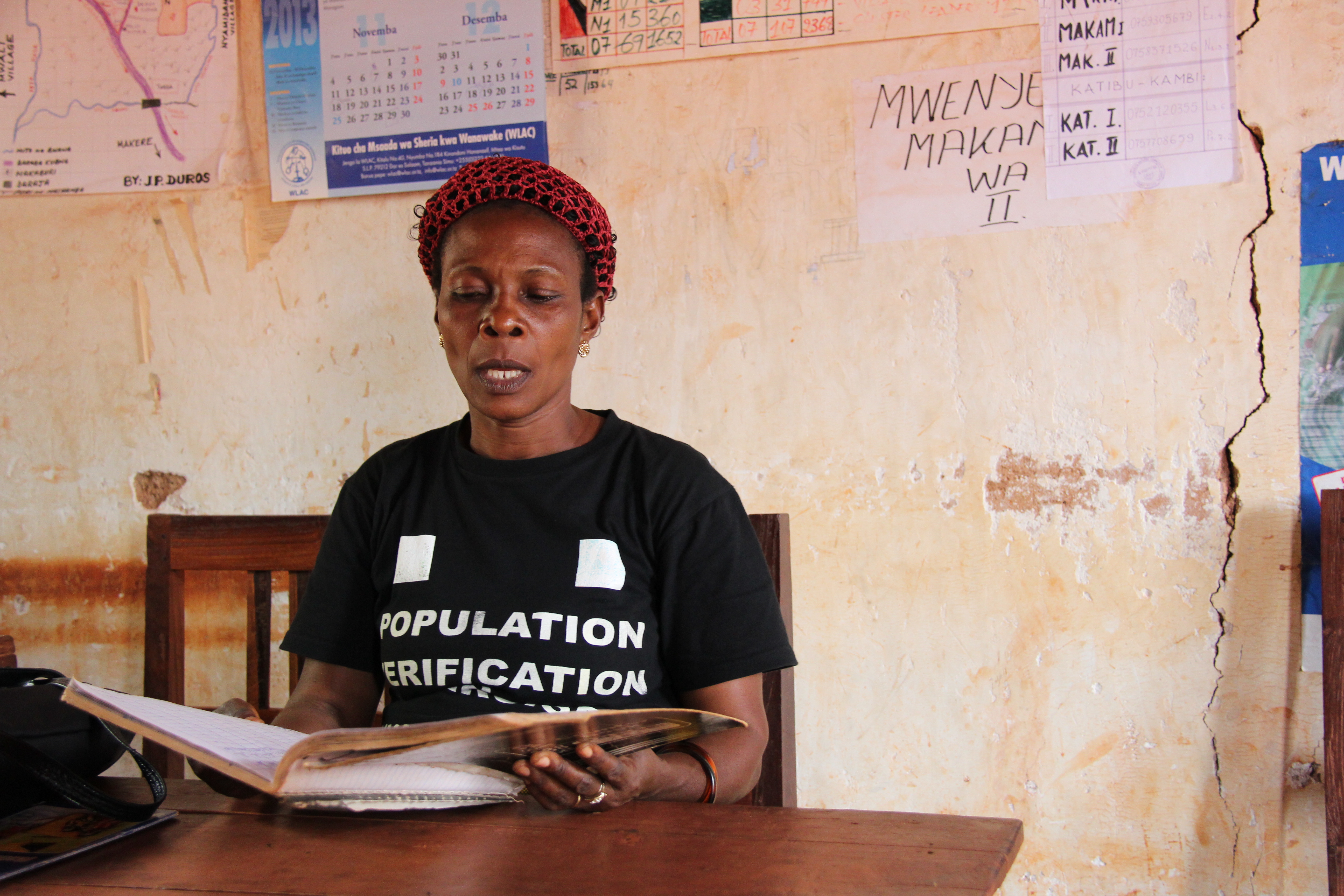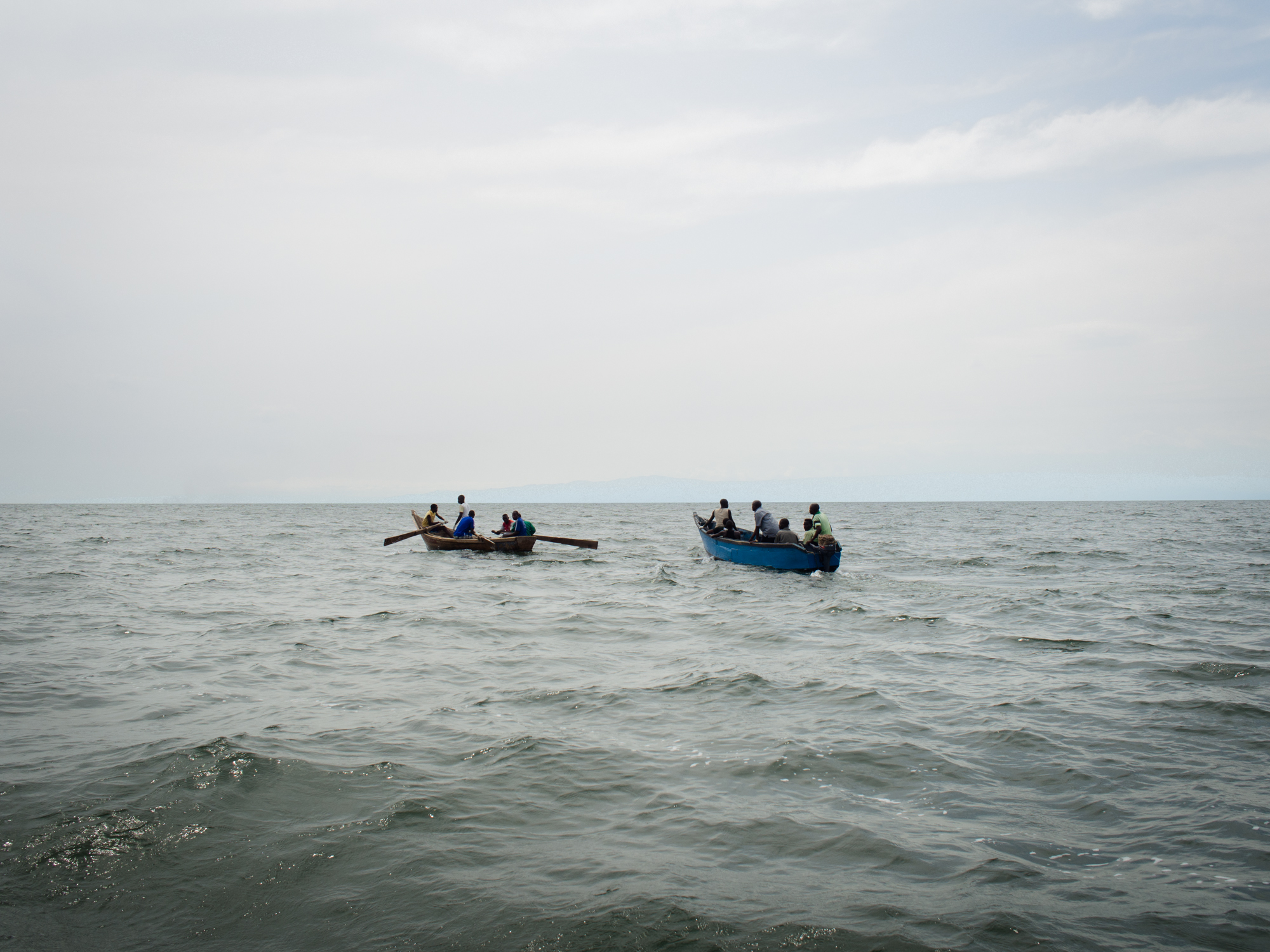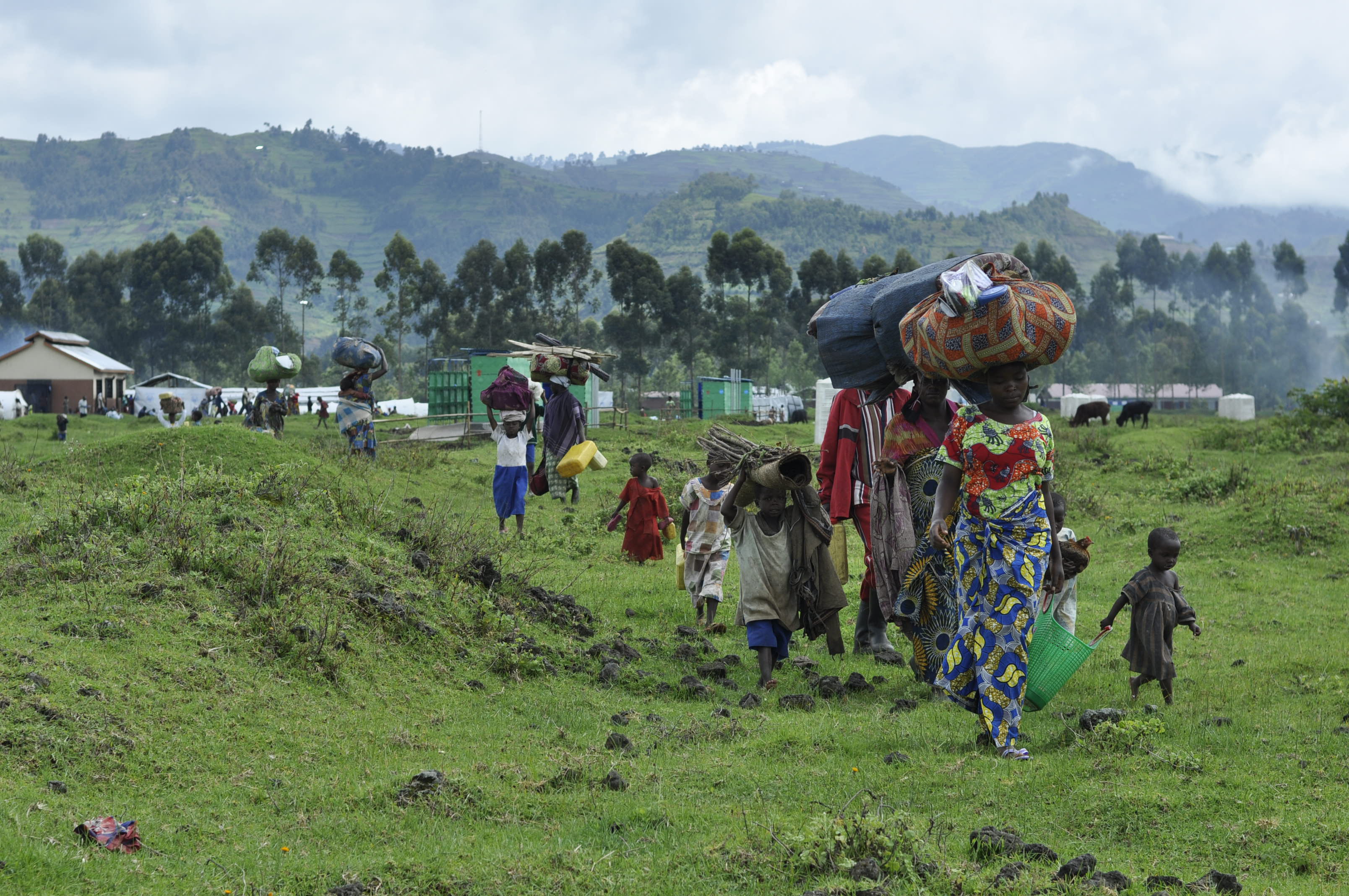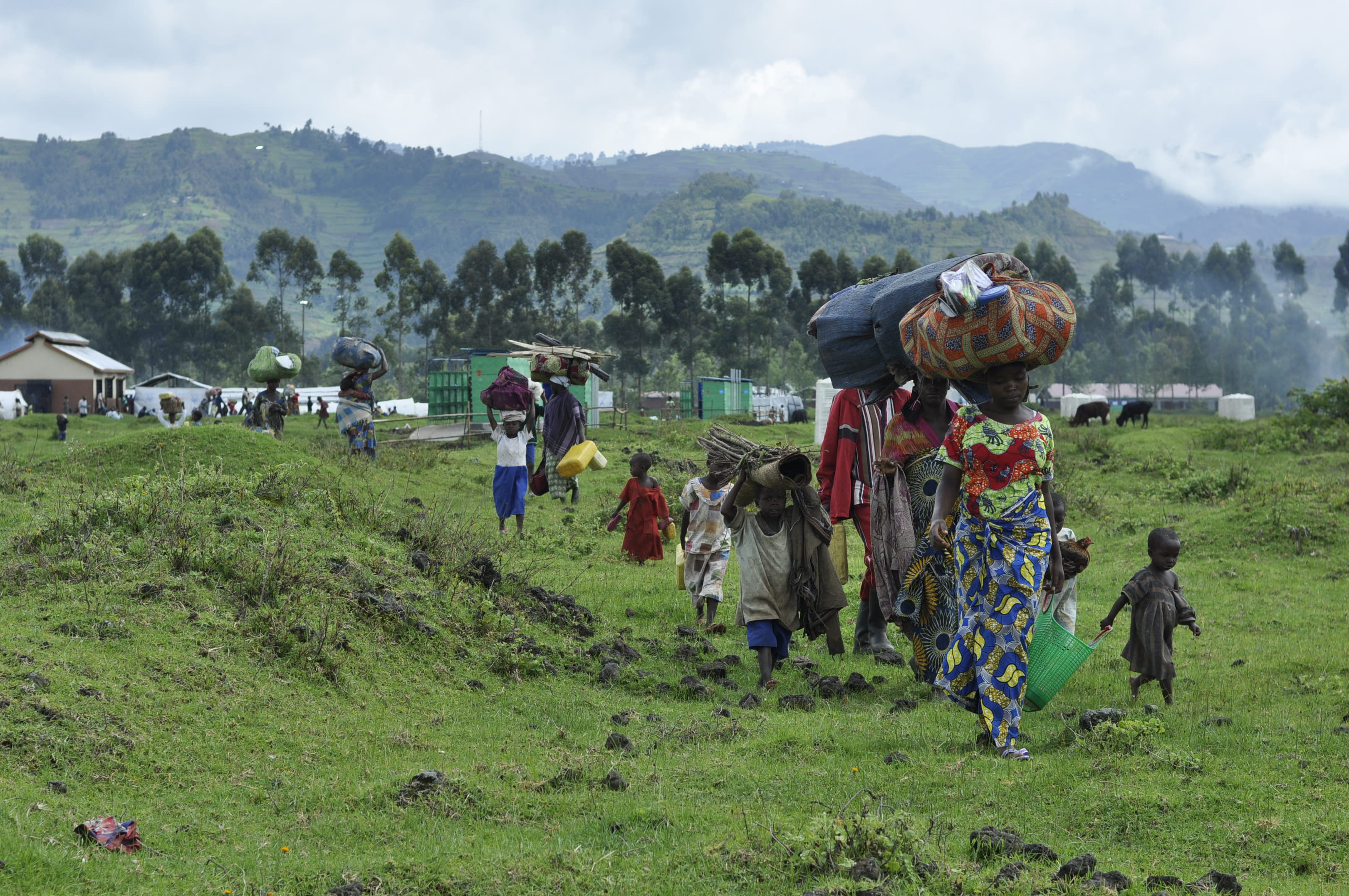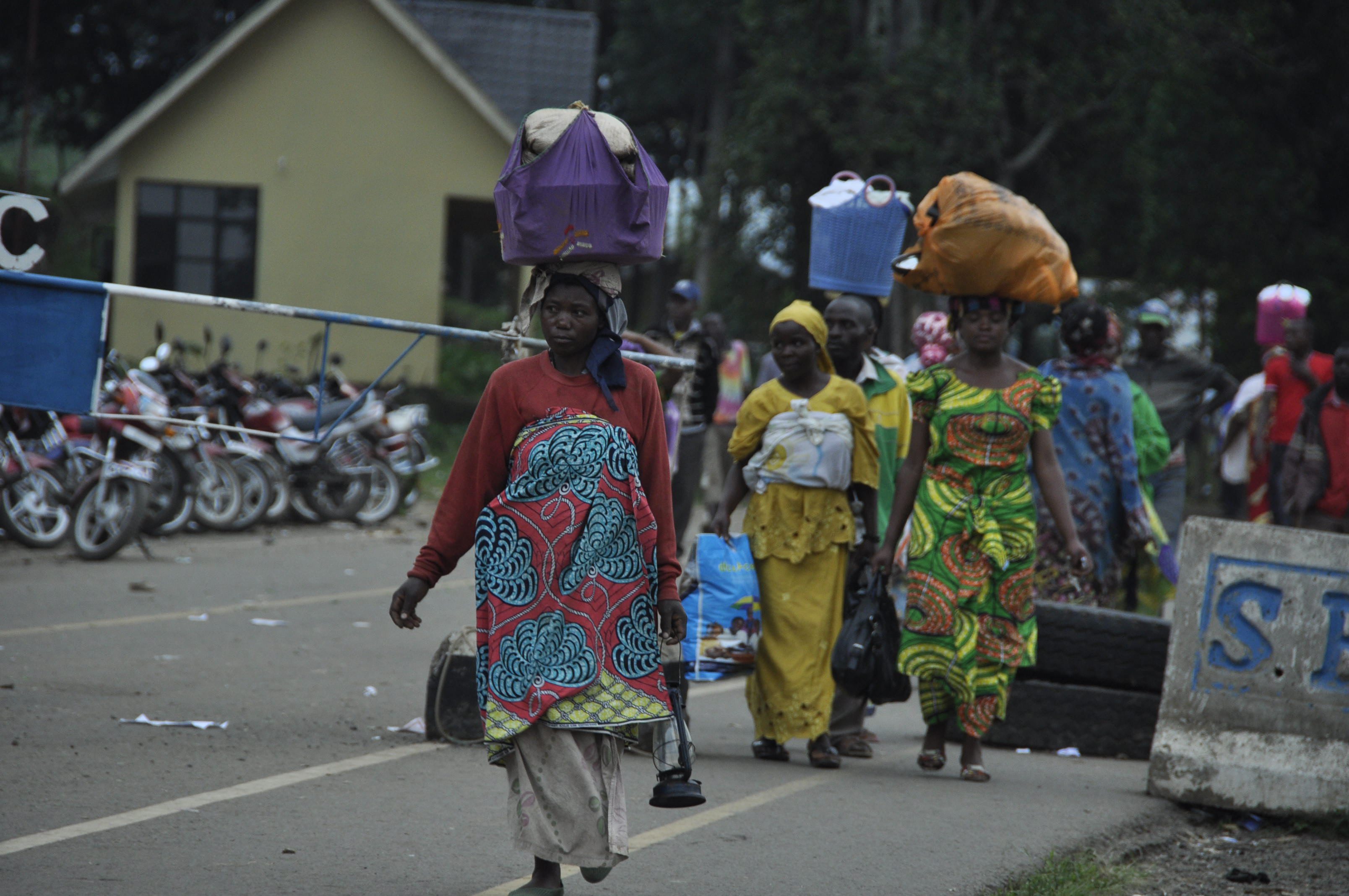UNHCR helps traumatized children who fled DR Congo alone
UNHCR helps traumatized children who fled DR Congo alone

BUNDIBUGYO TRANSIT CENTRE, Uganda, July 17 (UNHCR) - In a corner of a just opened refugee transit centre in western Uganda, a scared and confused 15-year-old orphan, Jean,* shares a tent with other Congolese boys who have lost or been separated from their families.
The special shelter for unaccompanied children is part of the transit centre at Bundibugyo, opened on Sunday to provide protection and assistance for a massive influx of civilians fleeing fighting between the Congolese armed forces and the Allied Democratic Forces (ADF) - a Ugandan rebel group - in and around the eastern Democratic Republic of Congo (DRC) town of Kamango.
Since last Thursday, more than 66,000 people have sought shelter in Uganda from DRC's North Kivu province and some 5,000 of them had been transported to the camp as of Tuesday. The new arrivals urgently need assistance.
The biggest influx here in years has put a tremendous strain on the town of Bundibugyo (an estimated 21,600 people) and the district (240,000), where a significant proportion of the population is now made up of refugees.
Jean, whose parents died of illness when he was only nine years old, was one of those forced to flee. He ran in the early hours of Saturday from his village near Kamango after one of his neighbours was captured by armed men, tortured and then shot in front of him. The teenager was living with his 18-year-old brother, but they were separated in the confusion.
The boy found his way alone to the Ugandan border by following others, who were carrying their belongings and trying to evade the fighting. When Jean arrived in Uganda, he was forced to stay in a school building in the hilly border region before UNHCR and Uganda's Office for the Prime Minister opened the transit centre in Bundibugyo on Sunday, accepting a first group of 300 people.
"It had rained," he recalled. "There were so many people in the school we all had to stand and I couldn't sleep," added Jean, who is one of 20 unaccompanied children in the centre. They receive special assistance in getting food and are housed in the separate, safe, shelter.
The Bundibugyo transit centre is located 28 kilometres from the border and has a maximum capacity of 20,000. UNHCR and its partners, including the Uganda Red Cross, are encouraging people to move to the centre where it is easier to provide protection and assistance, especially for the most vulnerable.
Most of the refugees prefer to stay by the border, criss-crossing during the day and hoping to return home soon. But those who ask to be transported to Bundibugyo receive hot meals, shelter, blankets and mats. UNHCR or its partners are also constructing latrines and organizing water supplies. There are currently more than 5,000 refugees staying in the centre with more arriving almost hourly.
"This is by far the biggest influx I have ever seen," said UNHCR Field Assistant Andrew Lubwama. "Our main worry at the moment is sanitation and hygiene facilities for the refugees … although if the rains come early, then we may also have problems with disease outbreaks," he noted.
Jean and his new companions will be safer in Bundibugyo than up in the hills, but many are traumatized by the ordeal of flight and they worry about relatives. Jean worries about his brother, while another boy in his tent, Jackson,* thinks constantly of his blind mother.
The traumatized 11-year-old stands in ripped blue shorts and tells UNHCR that he lived with his brother and mother across the border in North Kivu. When the ADF attacked, he and his brother Fred,* aged 13, made the heart-breaking decision to flee, leaving their mother behind because she did not think she could survive the journey. The brothers do not know what happened to her.
Although the ordeal of flight is over for boys like Jean and Jackson, they face many new challenges. These include tracing lost relatives and making the decision whether to return home or volunteer to move to one of the refugee settlements in Uganda. For the moment they're just happy to be safe and have a roof over their heads…
* Names changed for protection reasons
By Lucy Beck in Bundibugyo, Uganda

